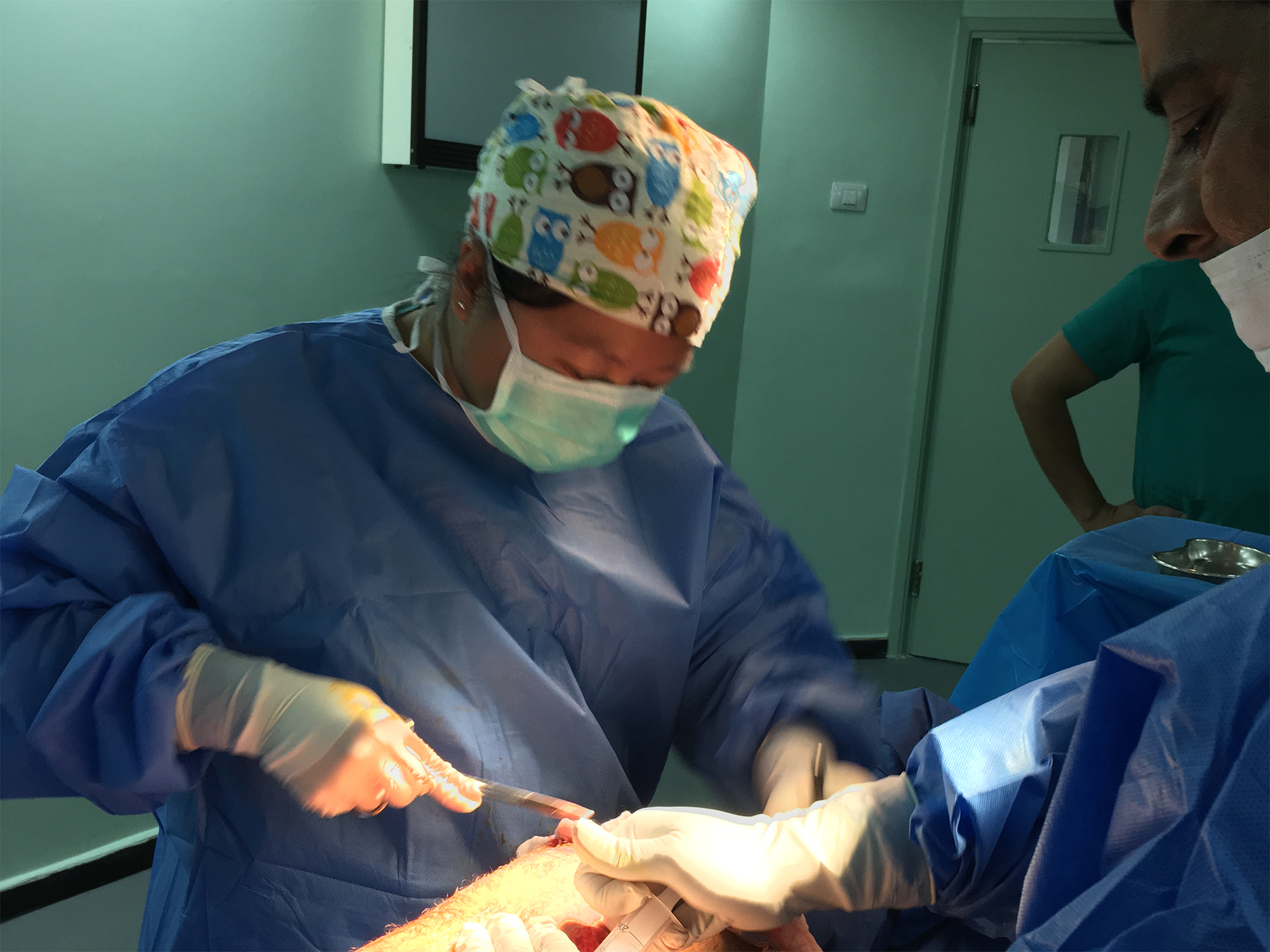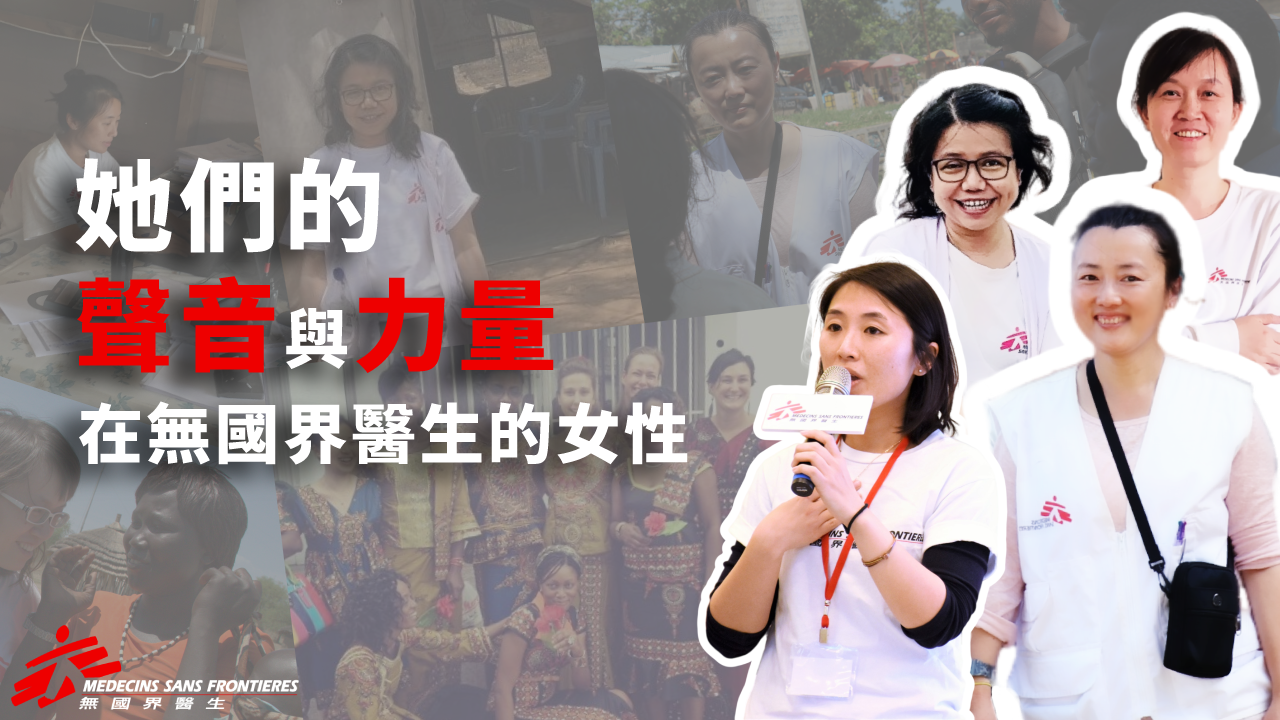Gaza: Hear the parents

Dec 07, 2018
Dr. Jennifer Tong
Orthopaedic Surgeon, Hong Kong
At 9 am on July 12, at the Al Awda Hospital in northern Gaza, the elevator doors opened on the third floor. A mother wearing a black veil rushed to the nurse station and asked to see her son Mohammed immediately.
I checked the medical record of the 16-year-old Mohammed. On May 14, Mohammed was shot in the tibia when he was trying to cross over the border fence dividing Israel and the Palestinian territory. An emergency operation with wound debridement was performed. The proximal tibia fracture was fixed with plaster. His follow-up appointment was scheduled two days later.
But why was Mohammed’s mother so nervous?
Mohammed’s mother lifted her veil, revealing her pale blue eyes – sapphire blue, my favorite colour. Yet, they looked hollow. Mohammed’s mother said, "You have to help my son. I already lost my eldest son a month ago because of the war. I can no longer bear to lose my only remaining son."
Seeing the worried mother, I did not know how to comfort her. "Quietes! (good in Arabic),”I quipped. I used my limited Arabic vocabulary to greet Mohammed’s mother, and asked our interpreter to explain to her that Mohammed was fine, and we could follow up his condition as initially scheduled.
Two days later, I saw Mohammed in our outpatient clinic. The fracture was healing, with callus. I could arrange for the removal of the plaster and physical therapy.
With this development, Mohammed’s mother finally showed a gentle smile and said, “Shukrun! (thank you in Arabic)”
In Gaza, it is difficult to have stable and rigid fixation for the plating of the tibial shaft. The operating room is not clean enough for orthopaedic internal fixation according to MSF standards. So it is difficult for Mohammed to have internal fixation of the tibia and remove the cast for early joint mobilisation. Even if Mohammed’s tibia bone would heal, there could be the possibility of early knee joint degeneration. The rehabilitation process for Mohammed is expected to be long. He might face the problem of knee pain in the long run, and lose his ability to work.
This Israeli-Palestinian conflict is not solely causing injuries to young adults, but also increasing the anxiety of their parents, and bringing financial burden to the entire family.

A typical dynacast moulded for tibia fractures ©Jennifer Tong
Inside the inpatient department of Al Awda Hospital, bed number three was once occupied by an 18-year-old boy. He was shot at the Israeli-Palestinian barrier on July 5. He sustained an open fracture of his left femur, and had to undergo external fixation and wound debridement. The operative procedure went smooth, but the open wound dressings should be changed every other day. (For gunshot injuries, due to the high contamination of the wounds and the extensive tissue damage caused by the bullet or sharp pieces, it is not advisable to close the wounds until they are clinically clean).
The patient’s mother is a consultant radiologist working at a local hospital. She has seen Gazan patients injured in the conflict. She said, "I have repeatedly reminded my son not to go to the fence." Yet, her beloved son has eventually become her patient.
The family lives on the fourth floor of a building. Because of his fracture, he can only carry out non-weight bearing walking exercise. And it is dangerous for him to get up and down the narrow staircase. His mother settled him temporarily at their relative’s home on the ground floor. He goes to the Al Awda Hospital every two days to clean the wounds, and every dressing change causes pain.
Every time the mother hears the cries of her son when receiving dressing, I believe that tears are also falling in her heart. The mother could not stop her son from getting hurt, neither can she yell at her injured son. While we focus on treating the injured, who comforts the helpless parents under enormous pressure?

An external fixator for fracture ©Jennifer Tong
Those injured in the conflict are usually between the ages of 16 to 30. They are not the only ones who suffer. Their parents also have psychological trauma, and the whole family loses hope.
-----------------------------------
The March of Return demonstrations have been met with lethal force by the Israeli army. Since the start, MSF has been at the forefront of the emergency response, providing both surgical and post-operative care.






Leave a Comment